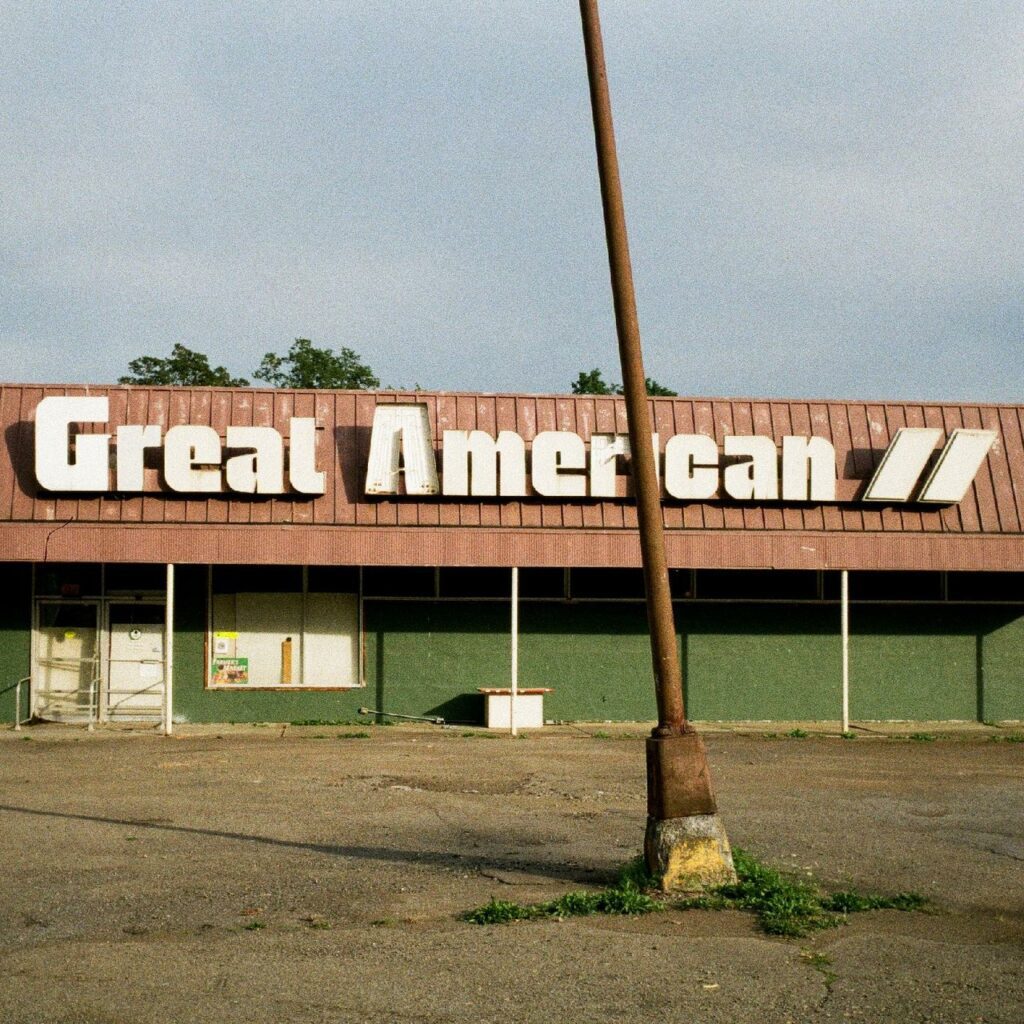A song by Joseph D’Agostino can spin in a dozen different directions. Take “Erlking,” an early standout from his second album as Empty Country. Named after a murderous elf from European folklore, it opens with a sobering thought about the victims of Sandy Hook: “Those 20 kids should be visiting colleges.” From there, D’Agostino alludes to Calvinists sailing across the Atlantic on wooden ships, glimpses terror in a “dented metal restroom mirror,” and sarcastically imitates dudes who brush away their buddies’ assault allegations: “Forget who he molests/He’s a hell of a guy.” Locating a linear narrative is difficult, but both the song and the album that surrounds it casts a shadow of doom, best summed up by one lyric: “We’re well and truly fucked, my dear.”
D’Agostino, the former Cymbals Eat Guitars frontman, started Empty Country after his arty, emo-inflected band broke up in 2017. His second album under the moniker continues the bleak imagining of America of his 2020 debut. Accompanied by one-time CEG drummer Charlotte Anne Dole and her twin brother Patrick on bass, D’Agostino tells tales of lost innocence, societal decline, and rampant violence, venturing further into the corroded recesses of this country’s past and present. Empty Country II is the purest distillation of his songwriting yet, and it could be packaged with a map: He name-checks everything from Tennessee’s Cumberland Caverns to New York City’s dreaded Port Authority Bus Terminal to the Glen Road Silver Bridge in Southeastern Connecticut. Often, the locations are the only solid ground D’Agostino offers. His tales are fictionalized, unreliably narrated, and interwoven across centuries.
“Bootsie,” which veers between claustrophobic verses and anthemic choruses, tells of a young girl who takes a Greyhound from West Virginia to the “Biblically filthy” New York of the early ‘80s, finding community (but also chemical dependency) within the disco era’s drag queen culture. Closing epic “Cool S”—named after that Cool S—is sung from the perspective of a teenage murderer who is now living out his days behind bars. “FLA” traces trauma across decades in its namesake state, spiritually linked by hurricanes in 1935 and 1992. While Empty Country II can feel like a short story collection whose thematic connections become more apparent with every page turn—and indeed, D’Agostino did write a companion short story to lead single “Pearl”—ECII is more masterful as an album than a lyric booklet, invoking the depressive blues of Neil Young’s Ditch Trilogy and the sweeping, scraggly landscapes of Modest Mouse’s The Lonesome Crowded West.
Whether accompanied by little more than a piano on “FLA” or guiding full-band climaxes with his falsetto on “Pearl,” D’Agostino’s adenoidal voice cuts against the grain of the music, ensuring that we hear every word. The prickly compositions stray from Empty Country’s folk and country overtones. Even on the jazzy David Berman tribute “David,” knotty solos and seedy atmospherics lurk in the background. Seek out the most uplifting lyric and you’re left with D’Agostino reflecting on Berman’s suicide: “I’m scared to die/But I’m not scared of death.” This is a dark, disheartening listen. And yet, Empty Country’s detail-driven writing shows there’s strength to be found in dredging all this up, that there’s beauty in the margins.
All products featured on Pitchfork are independently selected by our editors. However, when you buy something through our retail links, we may earn an affiliate commission.

